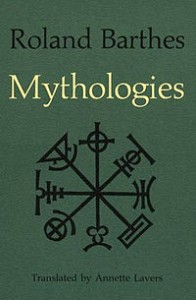 Tonight is the series end to Mad Men, the story of the early years of Madison Avenue ad men (and women). When last we saw him, the protagonist, Don, had given away his car to a young scam artist, offering him a new start, and was seated alone at a bus stop, his belongings in a big paper sack. His ex-wife, Betty, had been diagnosed with lung cancer but was going back to school anyway. His onetime boss and then partner, Roger, was playing an electric organ in their freshly vacated offices while Peggy, once a secretary but now an integral part of the creative team, had rollerskated her way into a new found self-confidence and a new office, armed with some erotic Japanese art.
Tonight is the series end to Mad Men, the story of the early years of Madison Avenue ad men (and women). When last we saw him, the protagonist, Don, had given away his car to a young scam artist, offering him a new start, and was seated alone at a bus stop, his belongings in a big paper sack. His ex-wife, Betty, had been diagnosed with lung cancer but was going back to school anyway. His onetime boss and then partner, Roger, was playing an electric organ in their freshly vacated offices while Peggy, once a secretary but now an integral part of the creative team, had rollerskated her way into a new found self-confidence and a new office, armed with some erotic Japanese art.
 Continue reading ““I Was an Orphan. I Grew Up in Pennsylvania…””
Continue reading ““I Was an Orphan. I Grew Up in Pennsylvania…””


 I remember standing in the checkout line at the campus bookstore with my copy of Roland Barthes Mythologies. I admit that I was suspicious of any book supposedly so profound that was also so small. Its size is deceiving just as much as its structure is unique: the first part of Mythologies is comprised of a series of short essays that provide the pop-culture exemplars of Barthes’ theory on how mythmaking operates (covering everything from food to clothing to politics), while the latter half is comprised of a theoretical essay – entitled simply “Myth Today” – that more overtly addresses the workings of this type of semiotic turn. Barthes rejected common definitions of myth that equate it with “falsehood” or “the stories that dead people believed.” Rather, Barthes understood myth as an absolutely ubiquitous process that involves the transformation of “history into nature,” or, put differently, the manner in which otherwise constructed things are made to appear natural or inevitable.
I remember standing in the checkout line at the campus bookstore with my copy of Roland Barthes Mythologies. I admit that I was suspicious of any book supposedly so profound that was also so small. Its size is deceiving just as much as its structure is unique: the first part of Mythologies is comprised of a series of short essays that provide the pop-culture exemplars of Barthes’ theory on how mythmaking operates (covering everything from food to clothing to politics), while the latter half is comprised of a theoretical essay – entitled simply “Myth Today” – that more overtly addresses the workings of this type of semiotic turn. Barthes rejected common definitions of myth that equate it with “falsehood” or “the stories that dead people believed.” Rather, Barthes understood myth as an absolutely ubiquitous process that involves the transformation of “history into nature,” or, put differently, the manner in which otherwise constructed things are made to appear natural or inevitable.